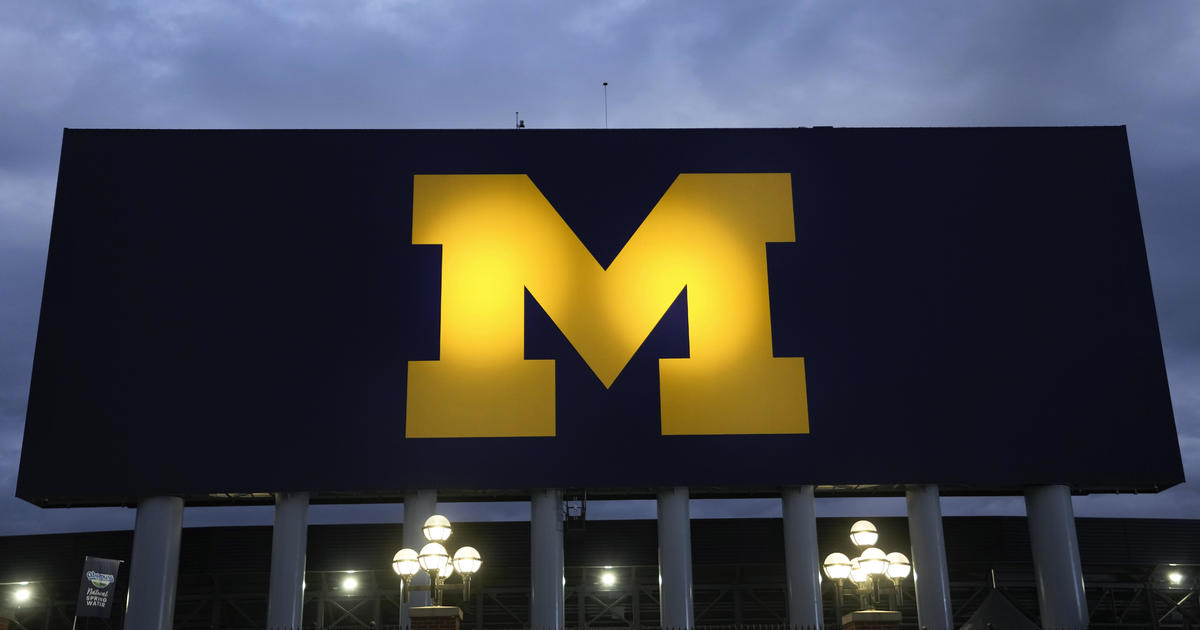Students Experience Orion Space Mission At Michigan Science Center (Video)
By Edward Cardenas
DETROIT (CBS Detroit) - Future scientists and astronauts got to experience the inaugural flight of NASA's Orion spacecraft firsthand at an interactive celebration Friday at the Michigan Science Center.
Students from Plymouth Scholars Charter Academy were among the school groups at the science center in Detroit who monitored the flight of NASA's next-generation crew vehicle on screens while learning the basic workings of a rocket by building straw rockets and Alka Seltzer rockets.
"I really like that science center has so much hands-on stuff that they can touch and experiment with, and they are very excited about that," said Claire Kwolek, a fifth grade teacher at Plymouth Scholars, which brought about 80 students to the center. "The extra bonus of the launch, and the all the activities they have planned for that, was really special."
The students conducted their experiments, and watched the Orion mission, just steps from an Apollo training capsule and in the shadows of scale models of the Saturn V rocket and the space shuttle at the center.
"I definitely think (the Orion mission) going to bring more people in to see our space exhibits," said Sarah Faist, an educator at the Michigan Science Center, who also sees the possibility of a Mars mission an inspiration to this generation. "I think it is super cool for kids."
The flight of Orion spacecraft, which will replace the space shuttle, launched from Cape Canaveral Air Force Station Friday morning on for a 4.5 hour test flight. The spacecraft orbited the Earth twice, which included one orbit nearly 3,600 miles above Earth. This was the deepest a spacecraft designed for astronauts has flown in more than 40 years.
"Today's flight test of Orion is a huge step for NASA and a really critical part of our work to pioneer deep space on our Journey to Mars," said NASA Administrator Charles Bolden, in a release. "The teams did a tremendous job putting Orion through its paces in the real environment it will endure as we push the boundary of human exploration in the coming years."
The Orion crew module splashed down in the Pacific Ocean, 600 miles southwest of San Diego. During the unmanned flight, Orion traveled twice through the Van Allen belt where it experienced high periods of radiation, hit speeds of 20,000 mph and weathered temperatures approaching 4,000 degrees Fahrenheit as it entered Earth's atmosphere, NASA stated.
The space agency plans on using Orion for deep space flights to an asteroid and Mars. Students were split on whether they would want to be an astronaut on a flight to the red planet.
"I might because of this," said Joe Kelly, a fifth grader at Plymouth Scholars, who added that he would be speechless if landed on Mars. "I would probably be pretty shocked because I've never seen a different planet than (Earth) up close."
His classmate Quinn Gillespie was impressed with the Orion launch, and looks forward to following a Mars mission, but he has other career dreams.
"There is too much risk for me. I want to be an actor and musician," said Gillespie. "That would be something I would have chosen two years ago, but I got a saxophone and I love it."



